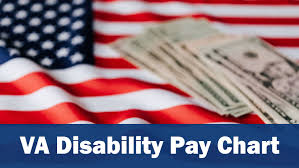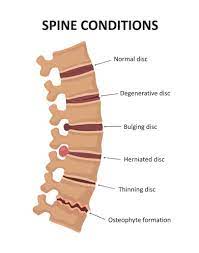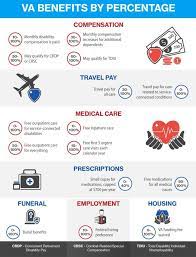Title: Disabled Veterans Education Benefits by State: A Comprehensive Guide
Introduction:
Disabled veterans have made immense sacrifices while serving our country, and it is crucial that we provide them with the support they need to thrive in civilian life. One key area of support is education benefits, which vary by state. In this article, we will explore the various education benefits available to disabled veterans across different states in the United States.
State-specific Tuition Waivers:
Many states offer tuition waivers for disabled veterans, allowing them to pursue higher education without the burden of tuition fees. These waivers often cover both undergraduate and graduate programs at public colleges and universities within the state.
In-state Tuition Rates:
Several states extend in-state tuition rates to disabled veterans, even if they are not residents of that state. This provision enables them to access quality education at a more affordable cost.
Vocational Rehabilitation Programs:
Numerous states provide vocational rehabilitation programs specifically tailored for disabled veterans. These programs offer career counseling, job training, and educational assistance to help disabled veterans develop new skills or enhance existing ones.
Scholarships and Grants:
Many states have established scholarships and grants exclusively for disabled veterans pursuing higher education. These financial aids can significantly alleviate the financial burden associated with college expenses.
State-specific Education Assistance Programs:
Some states administer their own education assistance programs for disabled veterans. These programs may include financial aid for tuition, textbooks, housing allowances, or other related expenses.
College Credit for Military Experience:
Certain states have policies that allow disabled veterans to receive college credit for their military experience and training. This recognition can shorten the time required to complete a degree program and reduce overall educational costs.
Support Services:
Several states have dedicated offices or centers that provide support services specifically designed for disabled veteran students on campus. These services may include disability accommodations, counseling, tutoring programs, and career placement assistance.
Conclusion:
It is heartening to see that many states recognize the importance of supporting disabled veterans in their pursuit of higher education. By offering various education benefits, these states are helping disabled veterans overcome financial barriers and achieve their academic goals. However, it is essential for disabled veterans to research the specific benefits available in their respective states and understand the eligibility criteria and application processes.
To access these benefits, disabled veterans should reach out to their state’s Department of Veterans Affairs or visit their official websites for detailed information. Additionally, veteran service organizations and college financial aid offices can provide guidance on available resources.
Let us continue to honor and support the brave men and women who have served our nation by ensuring that they have every opportunity to succeed in their educational endeavors.
9 Tips for Maximizing Education Benefits for Disabled Veterans by State
- Research State-Specific Programs
- Contact State Veterans Affairs Office
- Understand Eligibility Criteria
- Explore Tuition Waivers or Discounts
- Consider In-State Tuition Rates
- Look for Financial Assistance Programs
- Utilize Vocational Rehabilitation Services
- Seek Guidance from VA Education Counselors
- Stay Updated on Legislative Changes
Research State-Specific Programs
When it comes to accessing education benefits for disabled veterans, one important tip is to research state-specific programs. Each state in the United States may offer different benefits and resources for disabled veterans pursuing higher education.
By taking the time to research state-specific programs, disabled veterans can uncover valuable opportunities that can make a significant difference in their educational journey. These programs may include tuition waivers, in-state tuition rates, vocational rehabilitation programs, scholarships and grants, education assistance programs, college credit for military experience, and support services.
Researching state-specific programs allows disabled veterans to understand what benefits are available to them and how they can take advantage of them. It helps them navigate the often complex process of applying for these benefits and ensures they meet all eligibility requirements.
To start researching state-specific programs, disabled veterans can visit their state’s Department of Veterans Affairs website or reach out to veteran service organizations for guidance. These resources provide comprehensive information about the specific benefits offered by each state.
By conducting thorough research on state-specific programs, disabled veterans can maximize their educational opportunities while reducing financial burdens. They can make informed decisions about where to pursue higher education and access the support services they need to succeed academically.
In conclusion, researching state-specific programs is an essential tip for disabled veterans seeking education benefits. It empowers them with knowledge about available resources and enables them to make informed choices regarding their educational journey. By taking advantage of these programs, disabled veterans can overcome barriers and achieve their academic goals while honoring their service to our nation.
Contact State Veterans Affairs Office
One crucial tip for disabled veterans seeking education benefits is to contact their State Veterans Affairs Office. These offices are specifically established to assist veterans in accessing the benefits they are entitled to.
By reaching out to the State Veterans Affairs Office, disabled veterans can gain valuable information about the education benefits available in their state. These offices have knowledgeable staff members who can guide veterans through the application process and provide detailed information on eligibility criteria, required documentation, and deadlines.
State Veterans Affairs Offices can also help disabled veterans understand any additional resources or programs that may be available to support their educational pursuits. They can provide information on tuition waivers, in-state tuition rates, vocational rehabilitation programs, scholarships, grants, and other forms of financial aid.
Moreover, these offices often have connections with colleges and universities within the state and can offer guidance on choosing educational institutions that best cater to the needs of disabled veterans. They may also provide information about support services available on campus for disabled veteran students.
In summary, contacting the State Veterans Affairs Office is a crucial step for disabled veterans looking to access education benefits. These offices serve as a valuable resource for navigating the complex process of applying for benefits and can provide guidance throughout the entire journey towards pursuing higher education. By taking advantage of their expertise and support, disabled veterans can ensure they are maximizing the opportunities available to them and receiving the assistance they deserve.
Understand Eligibility Criteria
Understanding Eligibility Criteria for Disabled Veterans Education Benefits by State
When it comes to accessing education benefits for disabled veterans, understanding the eligibility criteria is crucial. Each state has its own set of requirements and qualifications that must be met in order to avail these benefits. Here’s why understanding eligibility criteria is essential for disabled veterans seeking educational support:
- Maximizing Opportunities: By familiarizing yourself with the eligibility criteria, you can determine which benefits you are eligible for in your specific state. This knowledge allows you to make the most of the opportunities available to you and take full advantage of the education benefits provided.
- Planning Ahead: Understanding the eligibility criteria enables you to plan your educational journey effectively. By knowing what requirements need to be met, you can prepare well in advance, gather necessary documentation, and ensure that you meet all qualifications before applying for benefits.
- Avoiding Disappointment: Without a clear understanding of eligibility criteria, there is a risk of disappointment if you apply for benefits without meeting the necessary qualifications. By being aware of the requirements upfront, you can save time and effort by focusing on programs that align with your eligibility status.
- Seeking Assistance: Understanding eligibility criteria allows you to seek guidance from veteran service organizations, educational institutions, or state agencies that specialize in assisting disabled veterans with their education benefits. These resources can provide valuable insights into specific requirements and help navigate any challenges that may arise during the application process.
- Exploring Alternatives: In some cases, if you do not meet certain eligibility criteria for one program or benefit, there may be alternative options available that better suit your circumstances. Understanding these alternatives allows you to explore different avenues and find suitable educational support that aligns with your needs.
Remember, eligibility criteria may include factors such as disability rating percentages, service-connected disabilities, length of service, discharge status, residency requirements, and more. It is important to thoroughly research and understand these criteria specific to your state to ensure a smooth and successful application process.
In conclusion, understanding the eligibility criteria for disabled veterans education benefits by state is crucial for maximizing opportunities, planning ahead, avoiding disappointment, seeking assistance, and exploring alternative options. By being well-informed about the requirements, you can make informed decisions and access the educational support you deserve as a disabled veteran.
Explore Tuition Waivers or Discounts
Disabled veterans have access to a range of education benefits, and one important tip is to explore tuition waivers or discounts offered by states. These waivers or discounts can significantly reduce the financial burden of pursuing higher education.
Many states provide tuition waivers for disabled veterans, allowing them to attend public colleges and universities without paying tuition fees. This benefit applies not only to undergraduate programs but also to graduate programs in some cases. By taking advantage of these waivers, disabled veterans can pursue their educational goals without worrying about the high cost of tuition.
In addition to tuition waivers, some states offer in-state tuition rates for disabled veterans, even if they are not residents of that particular state. This means that disabled veterans can access quality education at a more affordable cost compared to out-of-state students.
Exploring these options is crucial because the cost of education can be a significant barrier for many disabled veterans who may already be facing financial challenges due to their disabilities. By utilizing tuition waivers or discounts, disabled veterans can focus on their studies and achieve their academic goals without the added stress of financial burdens.
To take advantage of these benefits, disabled veterans should reach out to their state’s Department of Veterans Affairs or visit their official websites. They can find detailed information about eligibility criteria and application processes specific to each state.
In conclusion, exploring tuition waivers or discounts is an essential tip for disabled veterans seeking higher education. By utilizing these benefits, they can overcome financial barriers and pursue their educational aspirations with greater ease. Let us continue supporting our disabled veterans by spreading awareness about the education benefits available to them.
Consider In-State Tuition Rates
One essential tip to keep in mind when exploring education benefits for disabled veterans is to consider in-state tuition rates. Many states offer this valuable benefit, allowing disabled veterans to access higher education at a more affordable cost, even if they are not residents of that particular state.
In-state tuition rates can make a significant difference in reducing the financial burden associated with pursuing a college degree. By qualifying for in-state tuition, disabled veterans can save a substantial amount of money on their education expenses.
This provision is particularly beneficial for disabled veterans who may wish to attend a specific college or university outside of their home state. It opens up opportunities to explore educational institutions that align with their academic goals and career aspirations without worrying about excessive out-of-state tuition fees.
To take advantage of in-state tuition rates as a disabled veteran, it is crucial to research the specific requirements and eligibility criteria set by each state. Some states may require proof of military service or disability documentation, while others may have additional residency requirements. Contacting the admissions office or the veteran affairs department of the desired institution can provide clarity on the necessary steps and documentation needed to qualify for this benefit.
It’s important to note that every state has its own policies regarding in-state tuition rates for disabled veterans. Therefore, it is advisable for disabled veterans to thoroughly research and compare different states’ offerings before making decisions about their educational pursuits.
By considering in-state tuition rates, disabled veterans can significantly reduce the financial burden associated with higher education. This benefit opens doors to quality educational opportunities and allows them to focus on their studies and future careers without being overwhelmed by excessive tuition costs.
Remember, knowledge is power when it comes to accessing education benefits as a disabled veteran. Take advantage of available resources such as state-specific websites, veteran service organizations, and college financial aid offices for accurate information and guidance on obtaining in-state tuition rates.
Look for Financial Assistance Programs
When it comes to pursuing higher education as a disabled veteran, navigating the financial aspect can be challenging. However, there is good news: many states offer financial assistance programs specifically designed to support disabled veterans in their educational pursuits. If you are a disabled veteran looking to further your education, it is crucial to explore these programs and take advantage of the benefits they provide.
Financial assistance programs for disabled veterans can come in various forms, such as scholarships, grants, tuition waivers, and education assistance programs. These programs aim to alleviate the financial burden associated with tuition fees, textbooks, housing expenses, and other related costs.
To make the most of these opportunities, start by researching the specific financial assistance programs available in your state. Visit your state’s Department of Veterans Affairs website or reach out to them directly for detailed information on eligibility criteria and application processes.
Additionally, consider seeking guidance from veteran service organizations or college financial aid offices. These resources can provide valuable insights into available funding options and help you navigate the application process effectively.
Remember that each state may have its own set of benefits and requirements. Therefore, it is essential to thoroughly investigate all potential avenues for financial assistance that may be available to you.
By actively seeking out and applying for these financial assistance programs, you can significantly reduce the financial burden of pursuing higher education as a disabled veteran. Take advantage of every opportunity that comes your way and ensure that you receive the support you deserve on your educational journey.
Education is a powerful tool that can open doors to new opportunities and personal growth. As a disabled veteran who has served our country with honor, it is important to know that there are resources available to help you achieve your educational goals. Look for financial assistance programs in your state today and take one step closer towards realizing your academic aspirations.
Utilize Vocational Rehabilitation Services
Title: Utilize Vocational Rehabilitation Services for Disabled Veterans Education Benefits
Introduction:
Disabled veterans face unique challenges when it comes to pursuing higher education. However, there are resources available to help them overcome these obstacles and achieve their educational goals. One highly valuable resource that disabled veterans should consider utilizing is vocational rehabilitation services. These services, offered by various states, provide specialized support and assistance to disabled veterans seeking education benefits.
What are Vocational Rehabilitation Services?
Vocational rehabilitation services are designed to assist disabled individuals in preparing for, finding, or maintaining employment. For disabled veterans, these services often include educational support as part of their comprehensive rehabilitation plan.
How can Vocational Rehabilitation Services benefit disabled veterans?
- Career Counseling: Vocational rehabilitation counselors work closely with disabled veterans to assess their skills, interests, and career goals. They provide guidance on suitable educational programs that align with the veteran’s aspirations and abilities.
- Educational Assistance: Disabled veterans may receive financial assistance for tuition fees, textbooks, supplies, and other related expenses through vocational rehabilitation programs. This support significantly reduces the financial burden associated with pursuing higher education.
- Job Training: Vocational rehabilitation services offer job training programs tailored to the specific needs of disabled veterans. These programs equip them with the necessary skills and knowledge required in their chosen field of study.
- Disability Accommodations: Disabled veterans often require accommodations to ensure equal access to educational opportunities. Vocational rehabilitation services can help arrange necessary accommodations such as assistive technology, accessible facilities, note-taking assistance, or specialized transportation.
- Employment Placement Support: Alongside education benefits, vocational rehabilitation services provide assistance in finding suitable employment opportunities after completing an educational program. They offer job placement resources and connect disabled veterans with potential employers who understand their unique circumstances.
Conclusion:
Utilizing vocational rehabilitation services is a wise step for disabled veterans seeking education benefits. These services not only provide financial assistance but also offer valuable career counseling, job training, and disability accommodations. Disabled veterans should explore the vocational rehabilitation programs available in their state and connect with dedicated counselors to develop a personalized plan that aligns with their educational and career aspirations.
By taking advantage of these services, disabled veterans can overcome barriers, gain new skills, and enhance their employability. Let us continue to support and empower our disabled veterans as they pursue higher education and build successful futures after their honorable service to our nation.
Seek Guidance from VA Education Counselors
Seek Guidance from VA Education Counselors: A Key Step in Accessing Disabled Veterans Education Benefits by State
When it comes to accessing education benefits for disabled veterans, seeking guidance from VA education counselors is a crucial step. These professionals are well-versed in the intricacies of state-specific programs and can provide personalized advice and assistance to help disabled veterans navigate the process.
VA education counselors have a deep understanding of the benefits available to disabled veterans in each state. They can help determine eligibility requirements, explain the application process, and guide individuals towards the most suitable programs and resources.
These counselors are equipped with up-to-date knowledge about state-specific tuition waivers, in-state tuition rates, vocational rehabilitation programs, scholarships, grants, and other educational assistance available to disabled veterans. They can provide valuable insights into how to maximize these benefits and make informed decisions about pursuing higher education.
By seeking guidance from VA education counselors, disabled veterans can ensure that they are aware of all the options available to them. These professionals can help identify opportunities for financial support, assist with navigating complex paperwork, and offer advice on selecting educational institutions that align with individual goals and needs.
Moreover, VA education counselors can provide information on additional support services such as disability accommodations or counseling that may be available on college campuses. They can connect disabled veterans with resources that enhance their overall educational experience.
To access these invaluable resources, disabled veterans should reach out to their local VA office or visit the official website of the U.S. Department of Veterans Affairs. There they will find contact information for VA education counselors who are ready to assist them.
In conclusion, seeking guidance from VA education counselors is a crucial step for disabled veterans looking to access education benefits by state. These professionals possess specialized knowledge that can simplify the process and ensure that every eligible veteran receives the support they deserve. By reaching out for assistance, disabled veterans can take full advantage of the educational opportunities available to them as they transition into civilian life.
Stay Updated on Legislative Changes
When it comes to disabled veterans education benefits by state, staying updated on legislative changes is crucial. Education benefits for disabled veterans can vary from state to state, and legislative changes can have a significant impact on the availability and eligibility criteria of these benefits.
Legislative changes can occur at any time, and it’s essential for disabled veterans to stay informed about any updates that may affect their educational opportunities. By staying updated, veterans can ensure they are aware of new benefits or modifications to existing programs that may better support their educational goals.
To stay informed, disabled veterans should regularly check the official websites of their state’s Department of Veterans Affairs or other relevant government agencies. These websites often provide the latest information on education benefits, including any legislative changes. Additionally, subscribing to newsletters or email updates from veteran service organizations or advocacy groups can also help veterans stay in the loop.
It’s important for disabled veterans to understand that legislation surrounding education benefits is subject to change based on evolving policies and priorities. By staying updated on these changes, veterans can make informed decisions about their education plans and take advantage of all available resources.
In conclusion, staying updated on legislative changes regarding disabled veterans education benefits by state is crucial for maximizing educational opportunities. By actively seeking information through official channels and veteran organizations, disabled veterans can ensure they are aware of any new benefits or modifications that may enhance their educational journey.




